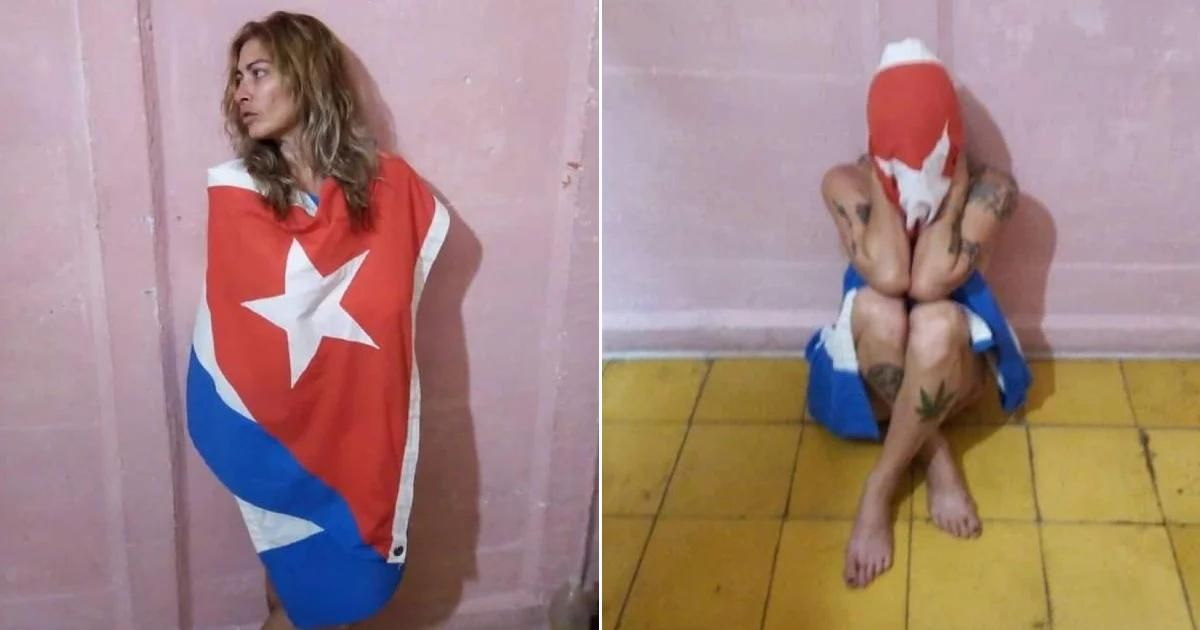
The appeal filed by political prisoner Aniette González García, sentenced to three years of imprisonment for posing with the Cuban flag, was rejected this Saturday by the provincial court of Camagüey.
The municipal branch of that judicial body had sentenced González for the alleged crime of "outrage against national symbols" in March 2023.
The appeal was based on the claim that the municipal court erred in its classification of the crime and in its assessment of the evidence. These arguments were rejected by the provincial court, which upheld the allegations that the young woman was naked beneath the flag, reported Martí Noticias.
González was arrested on March 23 of last year by State Security in the province of Camagüey after posting images of herself wrapped in the flag on Facebook.
The photos were part of the #LaBanderaEsDeTodos initiative, in support of the independent artist Luis Manuel Otero Alcántara, who was sentenced to five years in prison for allegedly committing the same offense.
Aniette Ginestá González, daughter of the political prisoner, announced on Facebook that they had filed an appeal that same month and that last Saturday she was notified of its rejection.
"Of course, we were at the mercy of that being the case; the question is why? Is it because we think differently from what the Cuban regime wants? Is it due to uncertainty about what lies beneath the flag? Based on a doubt? Three years?" Ginestá expressed indignantly, while also questioning the regime's justice in her mother's case.
"No one was present when the photos in question were taken; how could anyone claim that there was something beneath the skin?" the young girl challenged.
Ginestá questioned the true reasons behind his mother's conviction: “I wonder if everyone who defends the leadership that protects us sees the photos of my mom as something offensive, and at the same time, I ask why there is no one in the courts who dares to say ‘I am not offended.’”
"It is judged based on doubt and the slightest possibility that the truth lies on the other side of the coin is not examined. 'Is the blindfold so big that we cannot turn our gaze elsewhere?' lamented the young woman."
"Everyday Cuban, how long will this continue? By what you tolerate, you show people how to treat you," the girl emphasized.
Political prisoners in Cuba are serving "exemplary" sentences, a tactic used by the regime to silence voices that denounce crimes and demand social improvements.
For example, the dissident and co-author of the song "Patria y Vida," Maykel Osorbo, was sentenced to nine years of imprisonment, while fellow artist Luis Manuel Otero Alcántara is serving a five-year sentence.
Cuban opposition figure José Daniel Ferrer is surviving in Mar Verde prison, in Santiago de Cuba, for being one of the most vocal critics of the regime.
Filed under: